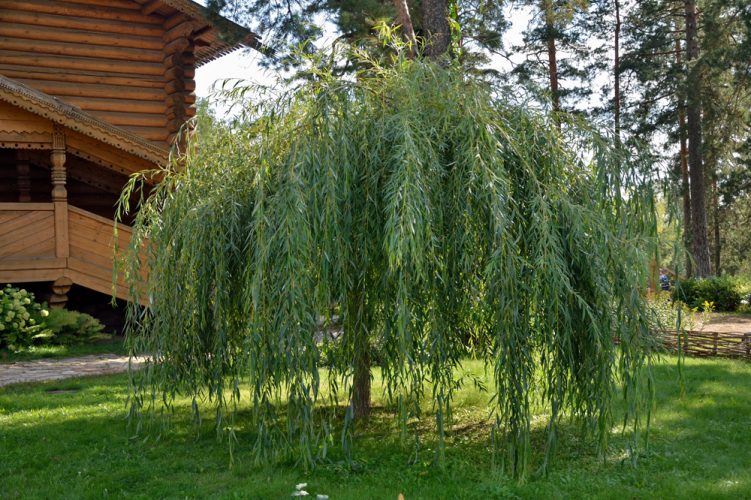The Willow Bonsai tree is a very fast growing tree and this makes it a great choice if you want to grow a bonsai tree. This graceful tree not only looks great as a bonsai, but because it grows so quickly you will have gratification much quicker than what you would get with another variety of bonsai tree.

When you grow the Willow Bonsai the growth that you see in the beginning will be upward; you will not see the downward growth of the weeping branches until later. When the branches do start growing in the downward direction, there will be slender leaves that are pale green in color.
With the Willow Bonsai being such a fast growing tree you can expect to replant this tree in a larger pot at least twice a year. When it does come time to replant this bonsai, it would be best to do this in the early spring or about mid summer.
There are a variety of different bonsai growing techniques that you can use for the Willow Bonsai tree. One of the best techniques is to root it over rocks; another option with this tree is to place it in an informal garden. You can grow this tree in a way that it will be slanted or stick with the more traditional upward growth.
For beauty there are few trees that match the Willow Bonsai; this tree will lose its leaves in the cold months and sprout new ones in the spring. Due to the fact that it grows so fast, you can expect to trim it several times during the year. When pruning the Willow, keep in mind that it needs the new shoots trimmed back, while at the same time the natural shape of the branches should remain.
To properly care for the Willow Bonsai you will need to make sure that it is watered on a regular basis, certainly no less than every two weeks. Although this bonsai does best in moist soil, if it is too wet the tree will not remain healthy. If by some chance the soil becomes too dry, it is best to water using the submersion method; simply place the pot in a container full of water until the soil is moist again. You can then remove the bonsai pot from the water. During the growing season you will want to feed your Willow Bonsai at least every two weeks. This will ensure that your tree is getting all of the nutrition it needs to thrive.
If you have an informal garden you will love what the Willow Bonsai does for it, but for those more formal gardens this tree seems a little out of place. Bear in mind that this bonsai is a beginner’s tree, so if you are experienced in this hobby growing this tree should pose no challenge at all.When starting a new Willow Bonsai tree you will need to use softwood shoots that have been harvested during the spring or summer season. If you have to start your tree during the fall, you should use the hardwood shoots. Keeping these things in mind will increase your chances of growing a healthy bonsai.
If you are thinking of starting a hobby of growing bonsai trees, the Willow Bonsai is a great choice to start out with; it grows quickly and is fairly easy to care for. If you don’t want to start your own bonsai tree you might be able to find one of these plants at a local nursery.
